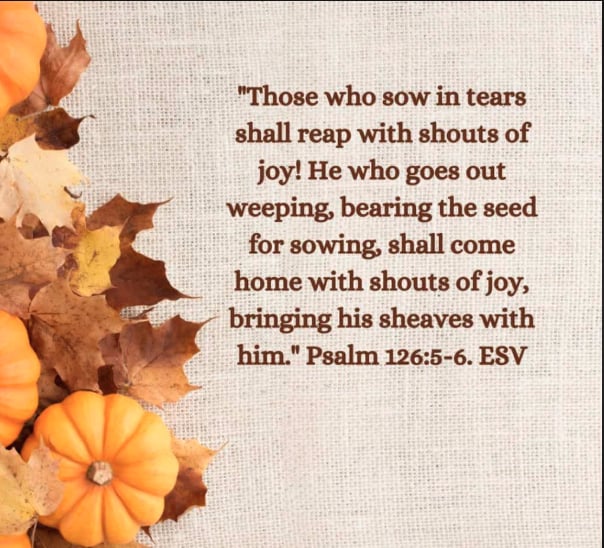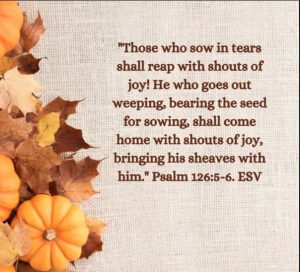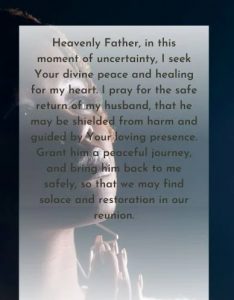The Underrated Blessing of Coming Home Safely: A Reflection on Life, Safety, and Gratitude Introduction

In the fast-paced whirlwind of modern life, there are countless achievements and milestones we celebrate—graduations, promotions, weddings, and awards. But often overlooked is one of the simplest, yet most profound blessings: leaving your home and returning safely. It’s a mundane event for many, yet for countless others, it’s a fragile hope, not a guarantee. The quiet journey of survival, often taken for granted, is perhaps one of the greatest miracles of daily life.
This article delves into why the act of coming home safely is a profound blessing, the psychological and emotional implications of safety in an increasingly unpredictable world, and how cultivating gratitude for this overlooked gift can change the way we live.
The Simplicity of Safety in a Complex World
At a glance, the idea of leaving home and returning safely seems like a basic human right. But in reality, it’s a privilege—often unconscious and unappreciated. Each day, millions of people venture out for work, errands, travel, or social engagements, not knowing what the world outside might bring.
Accidents, violence, natural disasters, and unforeseen dangers are part of the unpredictable nature of life. According to the World Health Organization (WHO), approximately 1.3 million people die each year due to road traffic crashes. Add to this the daily global incidents of crime, terrorism, and natural catastrophes, and the picture becomes clear: arriving home unharmed is not as ordinary as we think.
Psychological Impact of Everyday Safety

The feeling of safety forms the foundation of psychological well-being. Maslow’s hierarchy of needs places safety right after physiological needs like food and water. Without a sense of security, our mental stability crumbles.
When we live in dangerous environments or have been through traumatic experiences, we begin to understand the deep relief and joy that comes with making it home. This is particularly true for:
-
Emergency workers (firefighters, police, paramedics)
-
Individuals living in conflict zones
-
Victims of domestic violence
-
Survivors of accidents or health scares
For them, each return home becomes a quiet victory—proof that they’ve navigated another day of life’s uncertainties.
Stories That Remind Us of This Blessing

Let’s explore a few real-life instances where the simple act of coming home became a miracle:
-
Healthcare Workers During the Pandemic: During COVID-19, nurses and doctors walked into hospitals knowing they could contract a deadly virus. For months, returning home meant risking their families’ health. Every safe return was not just a relief—it was a blessing.
-
War Correspondents and Soldiers: For journalists and soldiers on the frontlines, each goodbye before a deployment could be the last. The moment they step back into their homes is drenched in gratitude.
-
Daily Commuters in High-Risk Areas: In cities plagued by violence or unsafe infrastructure, even a normal bus ride can become dangerous. In these places, returning home is not routine—it’s sacred.
Taking Safety for Granted in Peaceful Societies
In relatively peaceful nations, the blessing of safety is often invisible. Many people don’t reflect on the fact that going out and coming back is not a guaranteed outcome for everyone. This comfort can lead to complacency and a lack of appreciation for life’s smaller miracles.
We get frustrated about traffic, late buses, long lines at the store—while forgetting we’re fortunate to even be able to move freely and safely. Gratitude begins when we recognize that our daily routines are, in themselves, luxuries.
The Spiritual Lens: Gratitude and Humility
Many faiths emphasize the importance of gratitude. In Christianity, prayers of thanksgiving are offered for daily protection. In Islam, it’s common to say “Alhamdulillah” (praise be to God) upon returning safely. Buddhist and Hindu teachings also highlight mindfulness and awareness of life’s impermanence.
Acknowledging the blessing of safety aligns us spiritually. It makes us humble—aware that life is fragile, and every return home is a thread held by grace, luck, divine will, or fate.
How Gratitude for Safety Transforms Our Mindset

When we intentionally acknowledge this underrated blessing, our lives begin to shift in subtle but powerful ways:
-
Reduced Stress: Gratitude calms the mind. Instead of obsessing over delays or small inconveniences, we begin to feel thankful for simply being okay.
-
Improved Relationships: Recognizing the fragility of life can deepen our connections with loved ones. Every reunion feels more meaningful.
-
Increased Mindfulness: Being aware of our surroundings, practicing caution, and making wise choices become habits.
-
Greater Compassion: Realizing that not everyone returns home safely makes us more empathetic to others’ pain and loss.
Encouraging a Culture of Appreciation
As a society, we rarely pause to celebrate simple survival. We applaud accomplishments, but forget to honor the effort it takes to just keep going. That needs to change.
Here are ways we can start:
-
Family Rituals: Greet loved ones warmly when they return home. A hug, a smile, a “thank God you’re home” can mean a lot.
-
Workplace Awareness: Acknowledge employees who work in risky environments. A short note, a word of appreciation can go a long way.
-
Public Campaigns: Promote road safety, mental health, and personal protection measures. Educate people that safety is a community effort.
-
Personal Journaling: Before bed, write down: “I left home and returned safely today.” Over time, this becomes a source of deep personal gratitude.
When the Return Doesn’t Happen
While this article celebrates the safe return, we must also hold space for those who never made it back. For every joyful reunion, there’s a painful absence.
Families lose loved ones in sudden accidents, senseless violence, or unexpected illness. In their grief, they remind us of the invisible thread that holds our lives together. Honoring their stories strengthens our resolve to never take life for granted.
Let us remember:
-
The child lost in a school shooting.
-
The driver who didn’t make it home due to a drunk driver.
-
The hiker caught in a storm.
-
The traveler lost in a crash.
-
The worker caught in an industrial accident.
Their stories remind us why safety should never be underestimated.
Conclusion: Returning Home Is a Daily Miracle

In a world obsessed with chasing dreams, acquiring wealth, and seeking validation, perhaps we need to pause and notice something deeper: if you left your home today and made it back safely, you are among the blessed.
Safety is not just a condition—it’s a gift. A return home is not just routine—it’s a quiet miracle. Let’s not wait for loss to teach us this truth. Instead, let’s start now—by offering a prayer of thanks, a moment of reflection, or a simple “I’m glad you’re home.”
Because sometimes, the most ordinary blessings are the ones that matter most.












